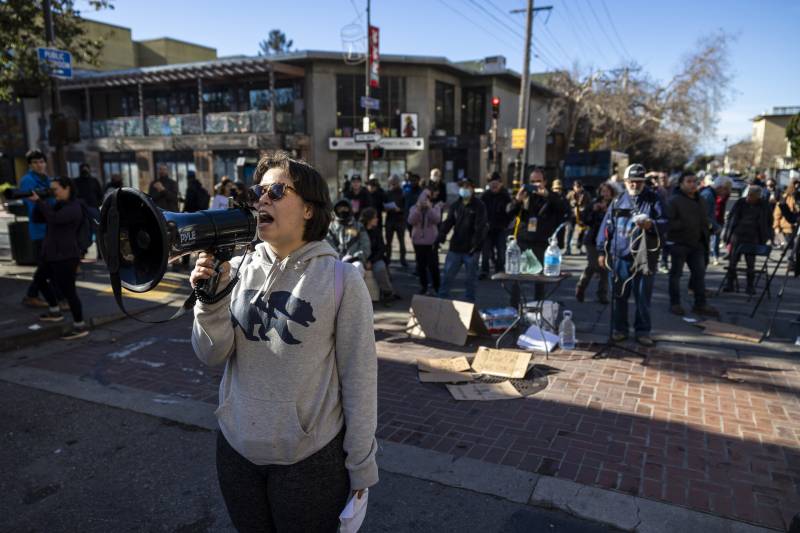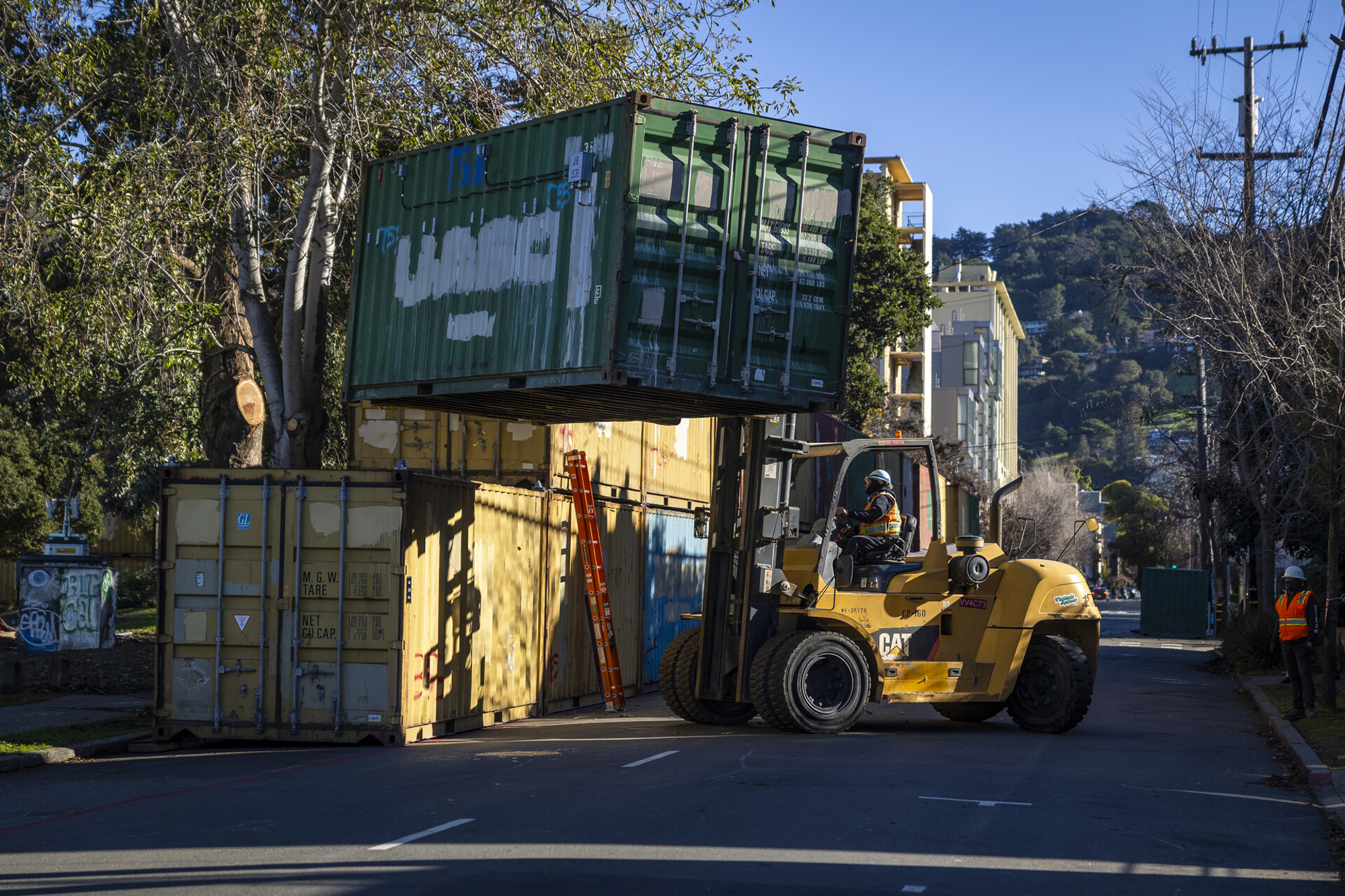South Berkeley resident and native Utahan Loa Niumeitolu, and Zachary Greer, a former Oakland resident, said they were both attracted to the Bay Area and to People’s Park because of the “rich history” of “people-powered movements.”
“People’s Park has been a piece of land that all communities have come together to ask the city to please preserve for many generations, to come as a place of peace, as a place of abundance, for all diverse communities to work together,” said Niumeitolu, who described the containers and decision to cut down trees as “horrific.” “The UC [is] … just blatantly saying, ‘We don’t care. We’re going to go ahead and build whatever we want without your consent.’”
On Thursday, UC Berkeley spokesperson Kyle Gibson said the university’s goal is to ensure the park’s closure is “as peaceful as possible,” adding that the park would reopen after construction is complete.
“Over two-thirds of this site will be a brand new public park that will be open to the community and will not be fenced,” said Gibson.
But Niumeitolu considers People’s Park a “community sacred site,” with a decades-long history that made it more than just a park.
“The land is sacred here, and the struggle of the people is sacred here. And that’s why we’re standing with it,” she said.
On Sunday, a “Protect People’s Park/Free Palestine” protest march is planned for 5 p.m. at Haste Street and Telegraph Avenue.
KQED’s Annelise Finney, Spencer Whitney, Attila Pelit, Erin Baldassari, Vanessa Rancaño and Rachael Vasquez contributed to this story.


